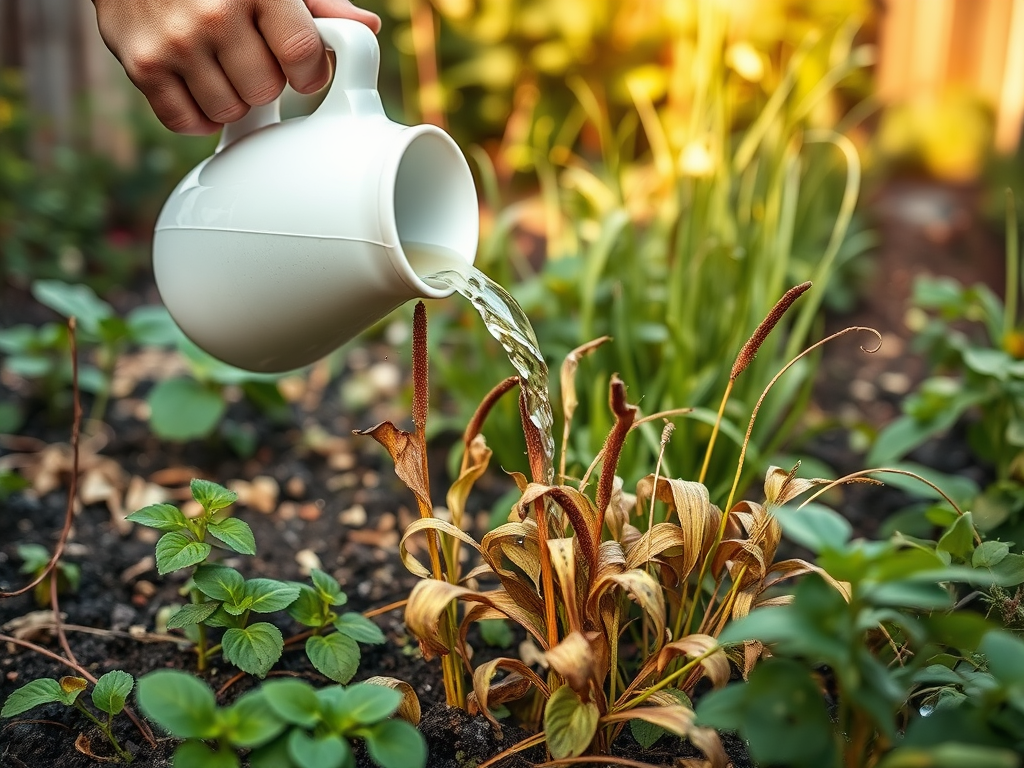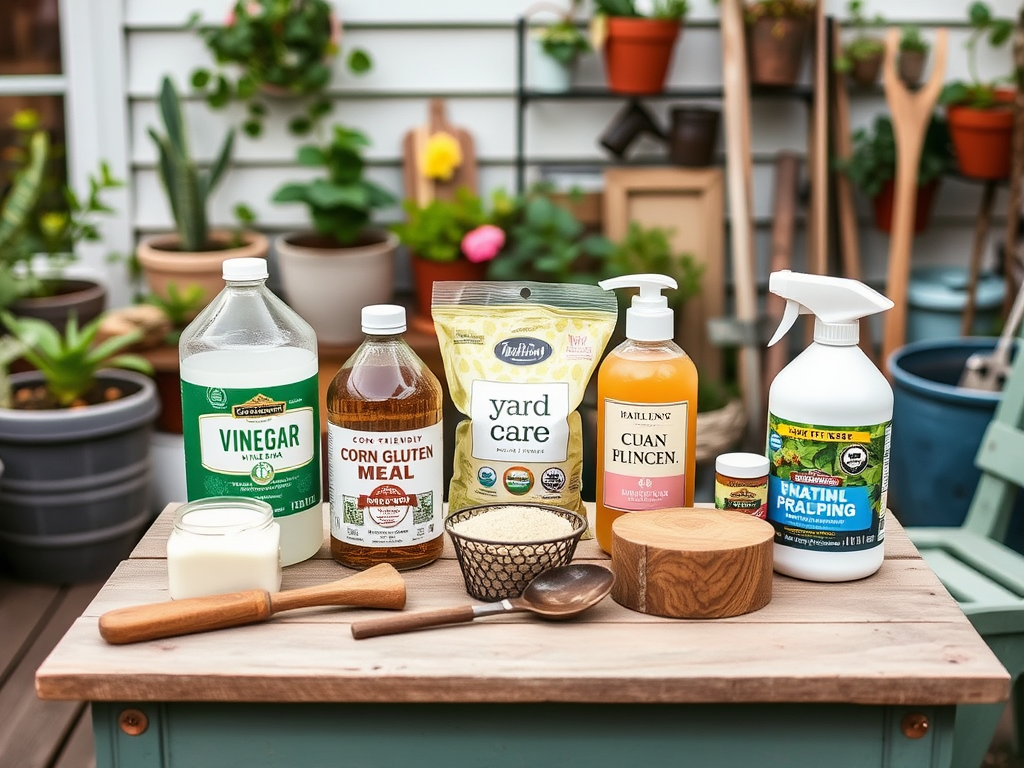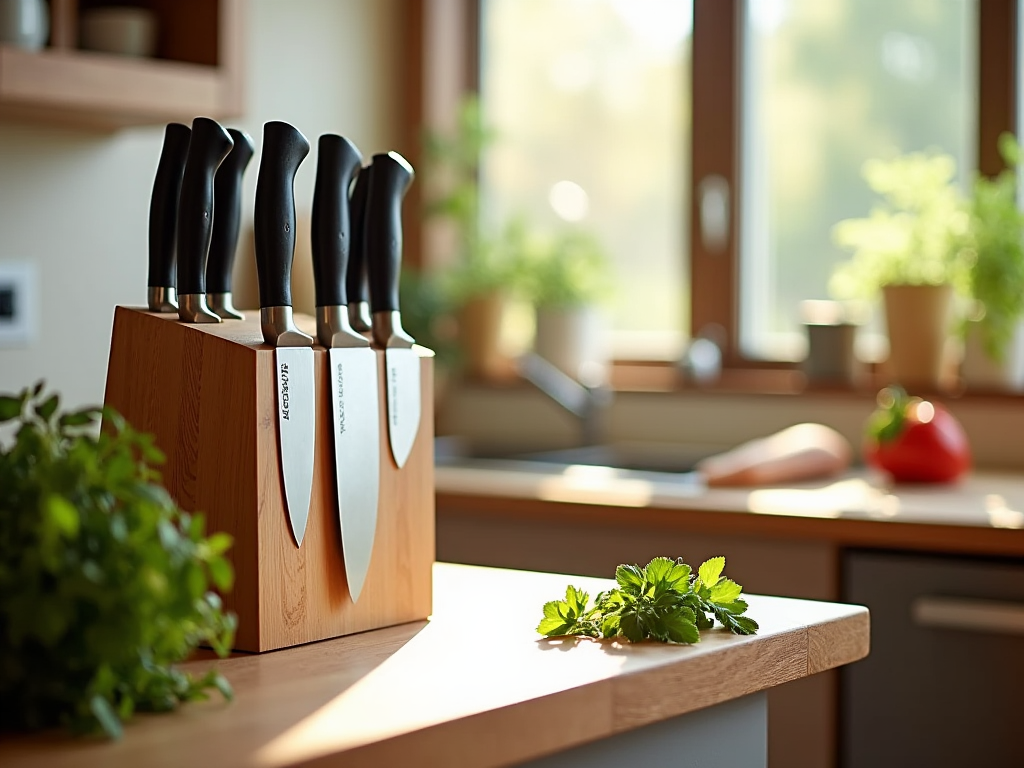Creating a beautiful and safe yard for your family is a labor of love, especially when it comes to keeping those pesky weeds at bay. Many families are increasingly becoming aware of the products they use in their yards as they consider the well-being of their children and pets. With traditional weed killers often loaded with harsh chemicals, it’s essential to explore eco-friendly alternatives that can be just as effective without compromising health. Simple household items can serve as formidable foes against invasive plants, allowing families to maintain a green oasis without the worry of dangerous repercussions. Not only can these safer options contribute to a healthier garden, but they also nurture a sustainable ecosystem that benefits the local wildlife. As we delve into the best weed killer solutions, you’ll find methods that align with both your gardening goals and your family’s safety.
Understanding the Risks of Chemical Weed Killers

Traditional chemical weed killers, often seen as quick solutions, can pose significant risks that many families are unaware of. Studies have shown that some components in these products can lead to health issues in young children and pets, including skin irritations and respiratory problems. Furthermore, these chemicals can leach into the soil, contaminating groundwater and harming beneficial insects and plants in the process. Families must weigh the convenience of chemical treatments against these potential hazards with care. The growing awareness of environmental sustainability now influences many households to seek alternatives that don’t come with such risks. Understanding the implications of chemical weed killers not only protects our loved ones but also fosters a conscientious approach to yard care.
The Environmental Protection Agency (EPA) keeps a close watch on the safety of various herbicides used in residential settings. They conduct evaluations to determine the potential effects of these chemicals on human health and the environment. Products that are notably harmful may come under scrutiny, and labels often carry warnings for proper use and necessary precautions. Families should pay special attention to trends regarding popular weed killers that have raised red flags, as regulations can change based on new research findings. Being informed allows you to make better choices that reflect your values surrounding health and sustainability.
Eco-Friendly Weed Killer Alternatives

Fortunately, there are numerous natural weed killer solutions that are effective, safe, and easily accessible. These eco-friendly options can help families maintain their gardens without the damaging effects of traditional products. From common household items to organic extracts, several alternatives not only tackle unwanted weeds but also contribute to an overall healthier yard environment. Using these solutions enables parents to confidently engage their children in gardening activities, cultivating an understanding of nature’s balance. Below, we explore some of the most effective natural weed killers that every family should consider for their yard care routine.
Vinegar as a Natural Herbicide
One of the most popular natural herbicides, vinegar, can easily be found in most kitchens. Its acetic acid content makes it a potent solution for destroying weed foliage upon contact. Simply spraying full-strength vinegar on the leaves of the weeds can produce visible results in just a few hours of exposure to sunlight. However, it’s essential to be cautious while applying as vinegar is non-selective and can harm desirable plants. For those looking for a stronger option, concentrations of 20% acetic acid are available at garden supply stores. Remember to apply during dry weather for best results, ensuring that no rain will wash it away.
Boiling Water for Instant Results
For a quicker method, boiling water can act as an instant weed killer. Pouring boiling water directly onto weeds effectively scalds and kills them immediately. This method is extremely safe for families, as it involves no chemicals at all; however, caution is necessary to prevent burns. The simplicity of this technique means you can use it as you tackle other outdoor tasks, making it a convenient option. Plus, it requires no special equipment—just a pot of boiling water! For tougher weeds, multiple applications might be necessary.
| Natural Weed Killer | Effectiveness | Safety Level |
|---|---|---|
| Vinegar | High | Safe |
| Boiling Water | Instant | Very Safe |
| Corn Gluten Meal | Preventative | Safe |
Corn Gluten Meal: A Preventative Measure
Corn gluten meal is another excellent solution for families seeking safer weed control methods. This organic option works uniquely as a pre-emergent herbicide, meaning it prevents weed seeds from germinating. Applied to your yard in early spring, it can keep unwanted growth at bay throughout the growing season. Just ensure that it’s used correctly, as it should be spread evenly to be effective. Additionally, corn gluten meal is not harmful to the environment or pets, making it a perfect alternative for conscious families. Incorporating this into your overall yard care routine offers lasting results and peace of mind.
Choosing the Right Weed Killer for Your Family
Selecting the appropriate weed killer is essential to maintaining a healthy yard that meets the needs of your family. The size of your yard, the type of weeds you’re dealing with, and whether you have pets or children will all influence your choice. Start by identifying the main weeds in your yard; some may require specific treatments. Understanding product labels is crucial in determining the safety and suitability of any garden solution. Families should look for organic certifications or specifically labeled pet-safe options for added assurance. Keeping track of lawn care products and even documenting their effectiveness can help you refine your approach over time.
Pet owners need to pay special attention when choosing herbicides, as many common products can be harmful if ingested or touched. Opting for more natural solutions mitigates many of these risks, allowing pets to play freely in the yard. Always check with your veterinarian regarding any concerns or potential allergies before applying any new product. It’s also wise to consult reviews from other pet owners who have used these products successfully. Create a schedule for applying your chosen solution that avoids peak playtime for your pets; this will help ensure that they are not exposed unnecessarily. Remember, a well-informed pet owner is a responsible pet owner when it comes to yard care.
Best Practices For Using Weed Killers Safely
Implementing best practices can maximize the effectiveness of your selected weed killers while ensuring safety for your family. When applying any treatment, it’s vital to wear protective gear, particularly eye protection and gloves to prevent direct contact. Timing your applications effectively is also critical, as we discussed earlier; applying during dry weather will enhance the potency of your solutions. Always read labels and scatter instructions to comply fully with the product recommendations. Additionally, being mindful of surrounding plants and ecosystems will help foster a healthy gardening environment. By promoting responsible application, families can enjoy weed-free yards without compromising safety.
Understanding the best times of year to apply your chosen weed killers can significantly affect effectiveness. Early spring is often the best time for pre-emergent solutions like corn gluten meal, as it targets weeds before they sprout. Post-emergent solutions such as vinegar and boiling water should ideally be used during the growth phase of the weeds, ensuring they are most vulnerable. Monitoring local weather patterns can also inform your timing; avoiding rainy days will enhance the likelihood of success. Keeping a simple calendar can serve as a reminder to apply treatments strategically throughout the growing season.
Conclusion
Maintaining a yard that is both beautiful and safe for families requires thoughtful practices, especially when it comes to weed control. By prioritizing eco-friendly solutions, parents can foster a nurturing environment for their children and pets while effective managing weeds. Safer options like vinegar, boiling water, and corn gluten meal allow families to enjoy their outdoor spaces with peace of mind. These methods align with the growing trend towards sustainable gardening practices, reflecting a commitment to protecting our loved ones and the planet. Ultimately, embracing family-friendly yard care is a rewarding endeavor that yields beautiful landscapes and preserves health, safety, and the environment.
Frequently Asked Questions
- What are the safest types of weed killers for families? The safest types include vinegar, boiling water, and corn gluten meal. Always read the labels for safety instructions.
- Can I make my own weed killer at home? Yes, common household items like vinegar and salt can be mixed to create effective weed killers.
- Is it safe to use chemical weed killers around pets? Generally, it’s advised to avoid using chemical weed killers around pets due to potential health risks. Opt for natural alternatives when possible.
- How long does it take for natural weed killers to work? Natural weed killers may take longer than chemical options, typically a few days to see significant results.
- What should I do if my child accidentally comes into contact with weed killer? Follow the instructions on the product label for first aid and immediately contact poison control if necessary.



